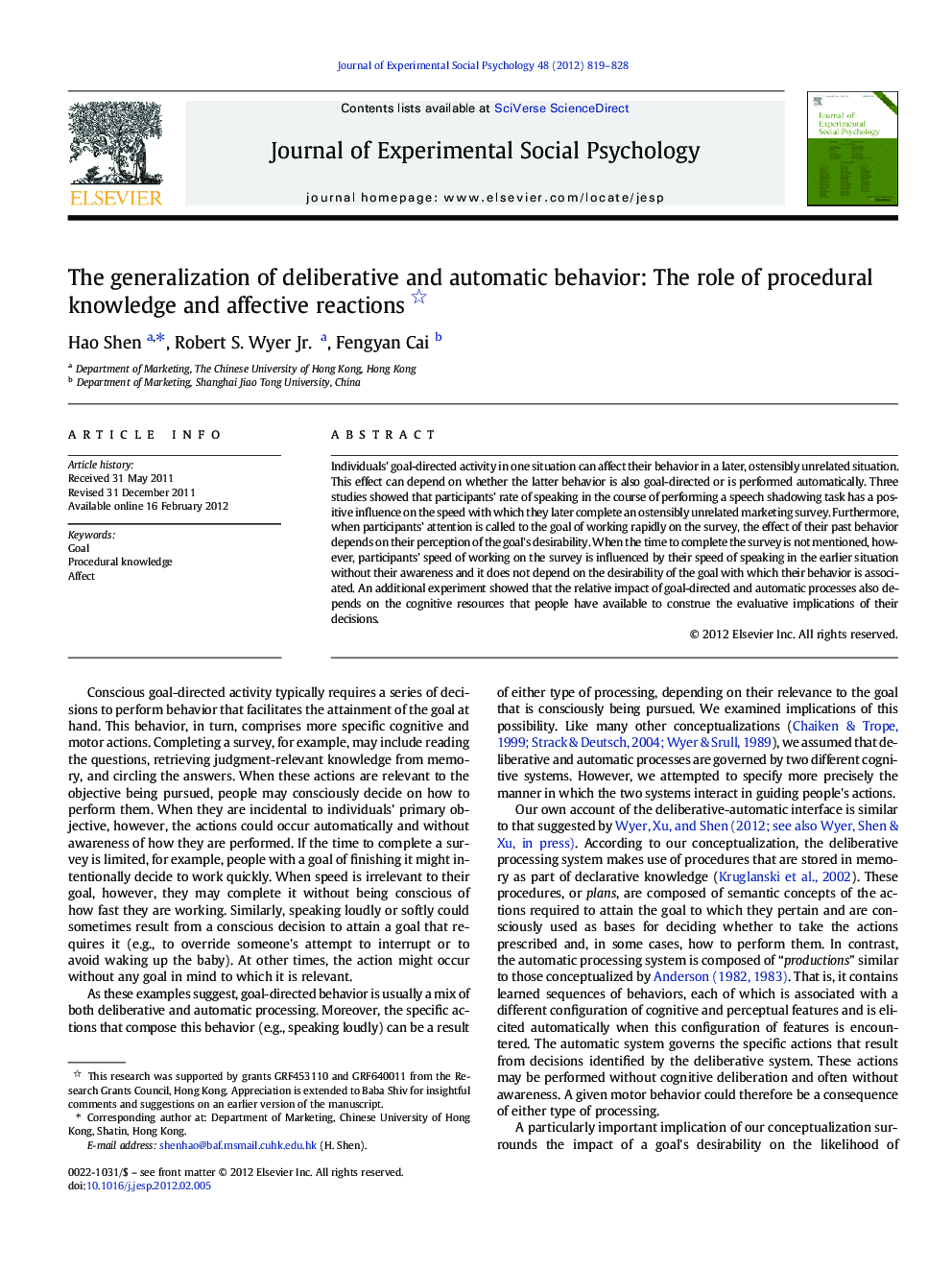| Article ID | Journal | Published Year | Pages | File Type |
|---|---|---|---|---|
| 948275 | Journal of Experimental Social Psychology | 2012 | 10 Pages |
Individuals’ goal-directed activity in one situation can affect their behavior in a later, ostensibly unrelated situation. This effect can depend on whether the latter behavior is also goal-directed or is performed automatically. Three studies showed that participants’ rate of speaking in the course of performing a speech shadowing task has a positive influence on the speed with which they later complete an ostensibly unrelated marketing survey. Furthermore, when participants’ attention is called to the goal of working rapidly on the survey, the effect of their past behavior depends on their perception of the goal's desirability. When the time to complete the survey is not mentioned, however, participants’ speed of working on the survey is influenced by their speed of speaking in the earlier situation without their awareness and it does not depend on the desirability of the goal with which their behavior is associated. An additional experiment showed that the relative impact of goal-directed and automatic processes also depends on the cognitive resources that people have available to construe the evaluative implications of their decisions.
► The effect of past behavior on later behavior is either deliberative or automatic. ► This depends on whether the later behavior is goal directed or not. ► Goal-relevant motor actions are performed based on their desirability. ► Goal-irrelevant motor actions are performed independently of their desirability.
